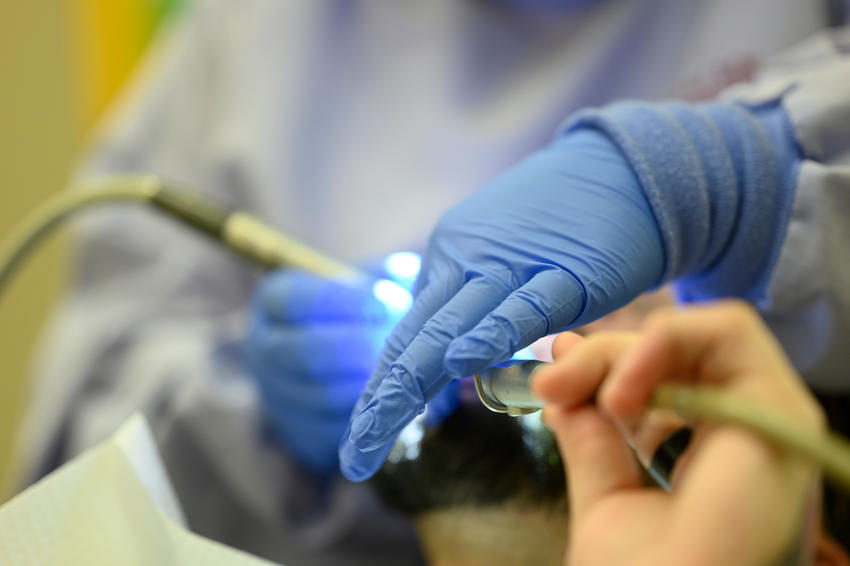Special Healthcare Needs Clinic receives MDH grant to improve technology and facilities

A new School of Dentistry clinic received a Clinical Dental Education and Innovations Grant from the Minnesota Department of Health to support technological and facility needs.
The Special Healthcare Needs Clinic, established in 2023, seeks to continue the previous work of the General Practice Residency (GPR) and the Walker Methodist Dental Clinic, both of which relocated to the school in 2023. This transition led to “a critical mass of faculty and staff who are experts in complex patient care,” according to Stephen Shuman, DDS, MS, FGSA, professor and director of the Division of Hospital and Special Care Dentistry and Oral Health Services for Older Adults Program
Shuman likens providing care for medically complex and special needs patients to playing football in a snowstorm. “The conditions can be tough. You have the same basic rules, but it’s harder to score points and run plays. There can be more slips and fumbles,” he said, “but the best team still wins based on their skill, experience, persistence, and creativity. That’s what I see in the clinic, too.”
Together with Jeffrey Stefani, DDS, clinical associate professor, Mark Roettger, DDS, FASD, clinical associate professor, Natalie Jones, DDS, adjunct assistant professor, and Mary Owen, DDS, MS, clinical professor, along with a seasoned clinical staff from both the GPR and Walker Methodist Clinics, Shuman seeks to guide the clinic in becoming a crucial part of training for all future oral health care professionals. “This kind of care used to be considered an elective experience, but there is now so much community need for these services, practitioners really need to have experience with patients who are more complex and have special health care needs,” Shuman explained. “We want to continue to train our students to meet the needs of all of their patients.”
Because the clinic operates in what was formerly the University of Minnesota’s Cleft and Craniofacial Clinic, the space required updates in imaging and other equipment to properly function for comprehensive general dentistry. The $100,000 grant from the Minnesota Department of Health will allow the clinic to house its own panoramic X-ray and other imaging units, adding accessibility for patients in wheelchairs while also creating efficiency in diagnosis and treatment planning.
“Getting all the images we need has been a challenge in the current space, and we have often lost time on this,” Shuman explained. “Having this equipment more readily available will be like going from driving a Hyundai to a Cadillac.”
But most of all, Shuman looks forward to the ways that this grant will support the school’s ability to bring more learners into the Special Healthcare Needs Clinic—a team whose value he sees as a clinician and as a person.
“The students we’ve seen rotate through so far have really enjoyed the experience, and I look forward to making this rotation available for all students at the school,” he explained. “We take care of some of the toughest patients out there, and our team sees the reward in providing excellent care for people who couldn’t get it elsewhere. When you’re providing dental care for someone who has not been able to get dental care anywhere else, or so they can safely get a heart valve replacement or an organ transplant, it’s hard to beat that feeling. We are making a big and immediate impact on people’s lives.”